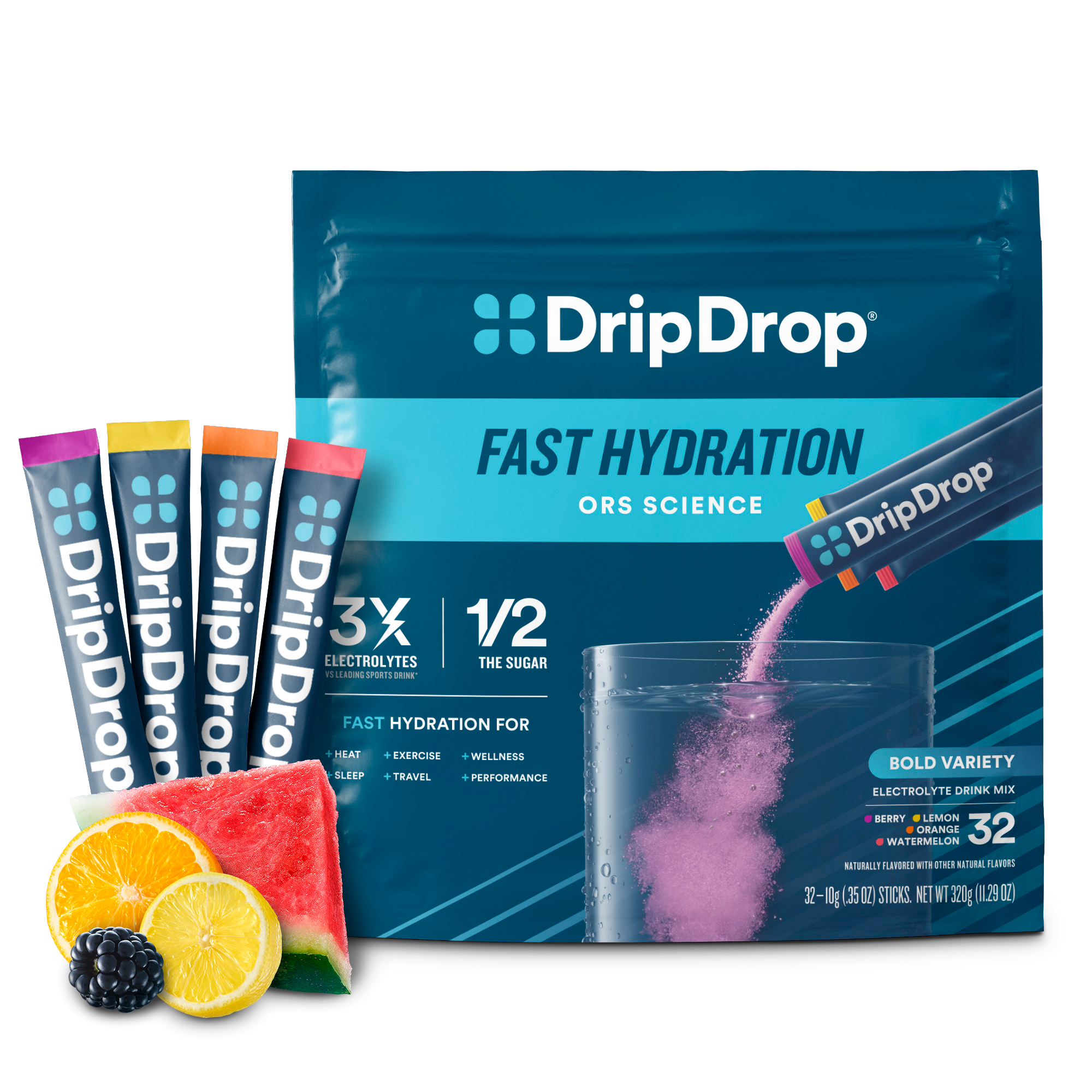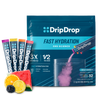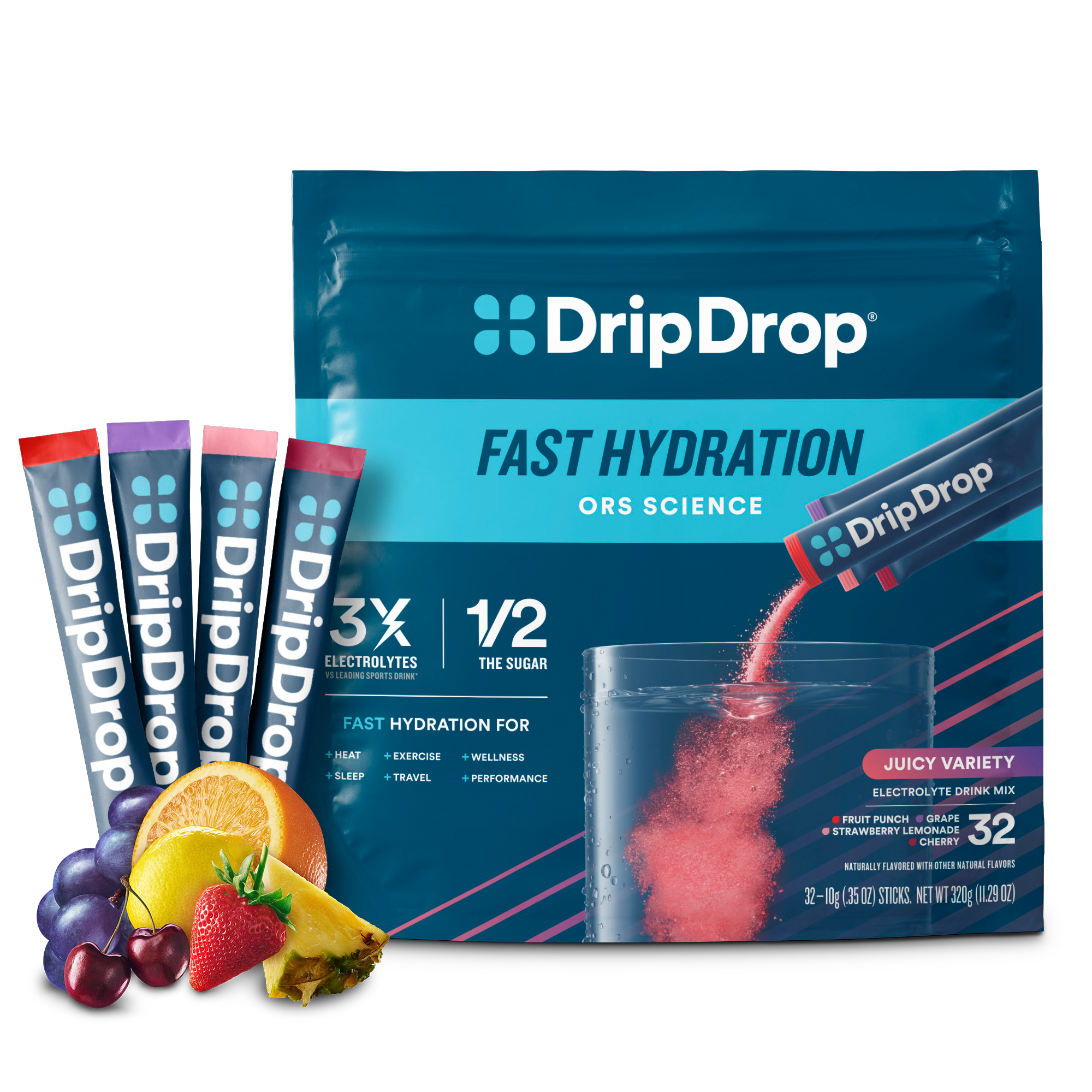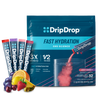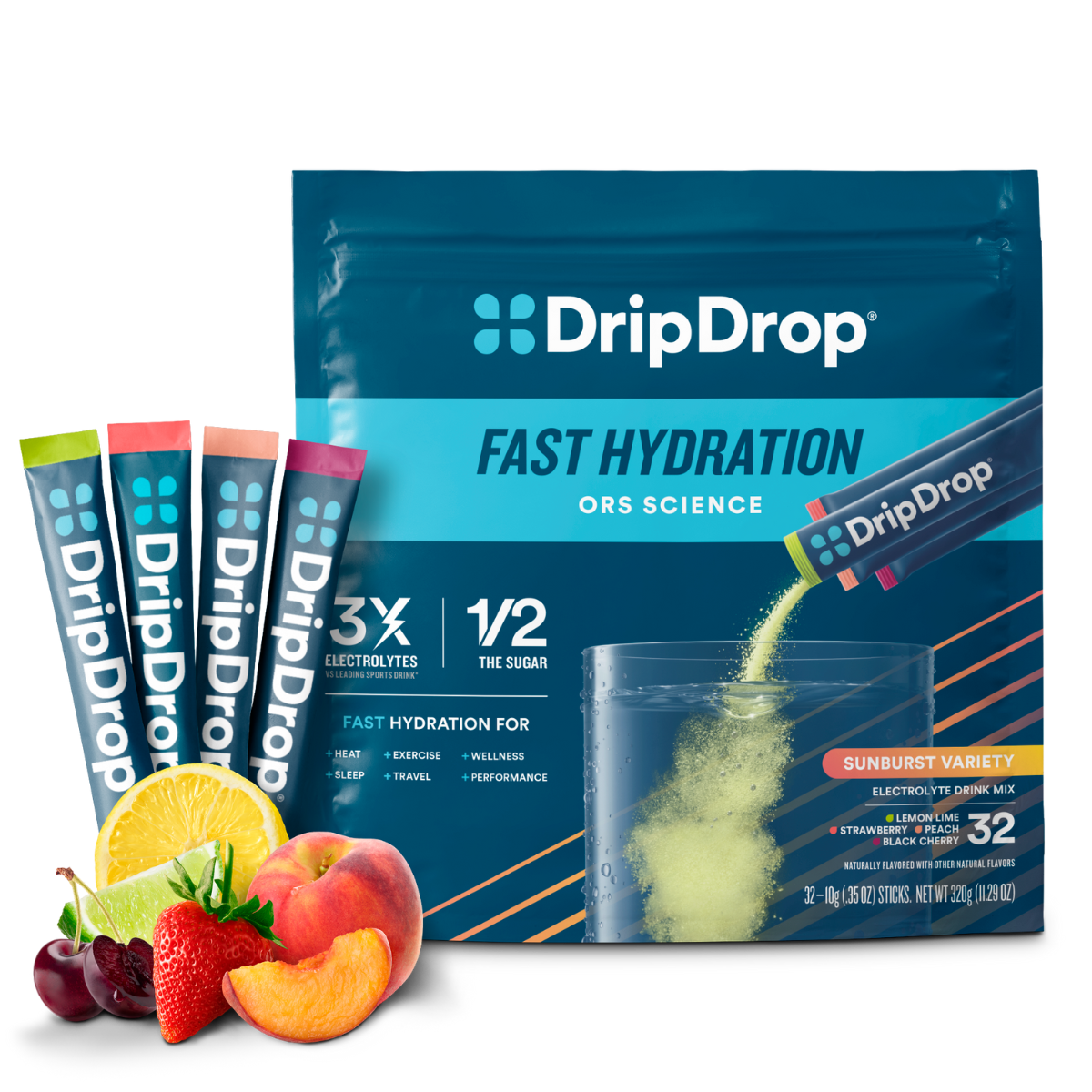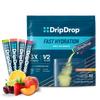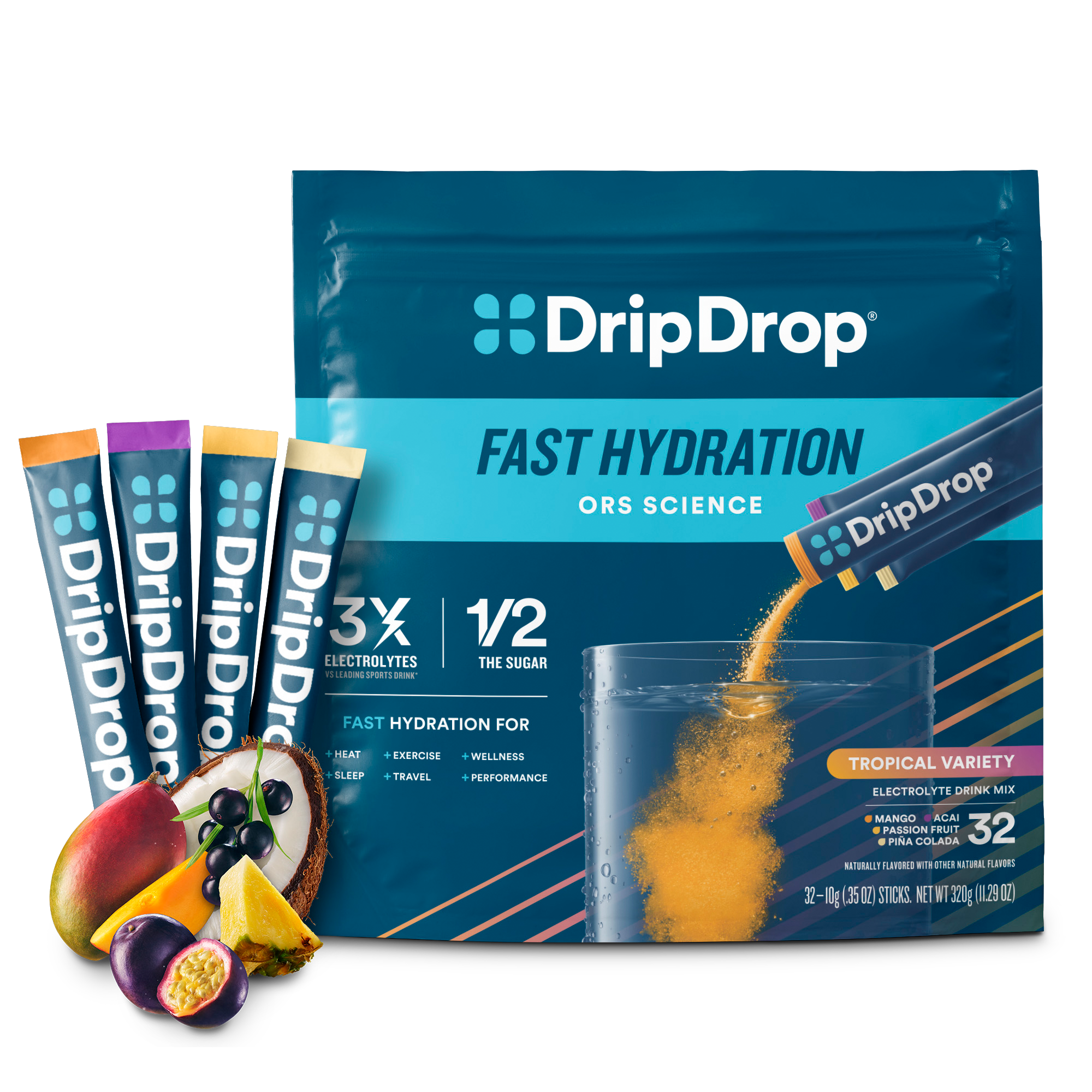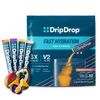If someone asked you, “Is sodium bad for you?”, you’d probably be inclined to say yes. But you may be surprised to find out that’s not technically true. Sodium itself isn’t a problem, but getting too much or too little of it is.
In fact, this mineral is “worth its salt” in terms of your overall health. It is a critical mineral your body needs to perform everything from sending nerve impulses to moving your muscles.
While many Americans have a high daily sodium intake and could benefit from eating less salt, forgoing the mineral entirely isn’t a good idea. Here, you’ll discover the answer to the age-old question, “Is sodium bad for you?” You’ll learn the role of sodium in the human body and how sodium levels are connected to dehydration.
The Role of Sodium
There's no shortage of studies showing a correlation between high sodium consumption and negative health outcomes especially in terms of heart disease, stomach cancer, and kidney disease. With all the studies and media coverage on sodium and heart health, you may be asking “Is sodium bad for you?” In fact, sodium plays a key role in overall health — you need a modest amount of sodium to stay healthy.
Here are some of the key roles of sodium in the human body:
- Maintains fluid balance inside and around cells
- Regulates blood pressure levels
- Sends nerve signals
- Supports muscle function
When discussing the role of salt, it’s important to understand what it is. Salt, also known as sodium chloride, is made up of around 40% sodium and 60% chloride. It’s used in culinary dishes and acts as a flavoring agent and preservative. On food labels, sodium also includes salty ingredients such as MSG, sodium citrate, and sodium benzoate.
Is Sodium Bad for You?
It’s no secret that sodium has a bad reputation. For years, people argued that sodium consumption led to heart disease, high blood pressure, and other health problems. However, many of us forget that the main issue is a sodium imbalance — either excess salt or not enough salt — rather than sodium itself.
The main issue with salt is the average American gets excess amounts of this vital mineral. According to the American Heart Association, the average American eats more than 3,400 milligrams of sodium per day. That’s much higher than dietary guidelines that call for a daily recommended amount of 1,500 milligrams per day. It’s also why so many studies show that excess sodium intake is correlated with heart problems.
If you eat too much sodium on a regular basis, your body responds by storing more and more water to dilute the sodium imbalance. This means an increase in extracellular fluid — the fluid around your cells — as well as blood fluid volume. This increased blood volume puts extra pressure on blood vessels and causes your heart to work harder. That’s why there's a correlation between excess sodium consumption and heart issues such as high blood pressure and heart attacks.
While most Americans would benefit from a low sodium diet or by simply reducing their salt intake, going completely salt-free is a bad idea. That’s because not getting enough sodium can also lead to problems including hyponatremia — a dehydration condition that occurs when sodium levels in your blood are below 135 mEq/L.
Hyponatremia can be caused by overhydration, drinking too much water, and medications such as diuretics and weight loss pills. Signs of hyponatremia include confusion, nausea, irritability, and seizures. Heart failure, kidney disease, liver problems, and hormonal changes are all risk factors of hyponatremia.
While sodium itself isn’t bad for you, it’s important to get the right amount of sodium, especially when it comes to dehydration.
Why Sodium Is Essential for Hydration
In terms of hydration, your body needs more than just plain old water. It also needs electrolytes like sodium and potassium to keep things running smoothly. Normal sodium levels effectively help to reduce fluid loss, helping to manage dehydration. Sodium triggers your thirst mechanism, encouraging you to increase fluid intake when dehydration starts to set in.
When sodium is dissolved in water — like in fluid in your cells — it becomes electrically charged and can change osmotic pressure. Osmotic pressure is the amount of energy required for something to move through the cell membrane. By regulating osmotic pressure, sodium makes it easier for water and other electrolytes to move into cells to restore hydration.
Sodium is such an effective dehydration tool, it’s used by most medical responders and doctors when treating dehydration. In fact, it’s why most first-line treatments for severe conditions start with using an intravenous solution (IV). An IV is essentially a saline solution — a mix of sodium and water — that’s designed to treat dehydration fast.
How To Get Sodium and Fight Dehydration
Most healthy people get enough sodium from foods and beverages. However, there are many people who eat low salt diets or high-sodium diets without knowing it. Maintaining normal sodium levels — and avoiding excess or shortages — can help you maintain proper hydration levels and avoid disorders such as dehydration and hyponatremia.
In general, normal sodium levels are between 135 and 145 milliequivalents per liter (mEq/L). If you’re not sure if your sodium levels are where they need to be, you can visit a healthcare practitioner for an electrolyte or basic metabolic panel test. During the test, the doctor will take a small sample of blood which shows your sodium levels as well as levels of potassium, chloride, magnesium, and other minerals.
While you can eat salty foods like pretzels and soy sauce that contain sodium chloride (table salt) or add sea salt to your culinary dishes, there’s a better way to get electrolytes to fend off dehydration. That’s because you don’t just need sodium — you need precise ratios of electrolytes and glucose to rehydrate fast.
The best way to get the electrolytes your body needs for hydration is to drink an oral rehydration solution like DripDrop. It contains a medically relevant amount of electrolytes that promote fluid balance and avoid dehydration. Plus DripDrop supplies vitamins like zinc, potassium, and magnesium which are essential to support your overall health.
Get Sodium and Manage Dehydration With DripDrop
So, is sodium bad for you? The short answer is no. In fact, your body needs precise amounts of electrolytes such as sodium to manage dehydration and carry out normal bodily functions.
The original DripDrop formula offers the perfect balance of sodium and glucose to help absorption so you can replenish vital electrolytes and fluids to relieve dehydration quickly. It is a proven alternative for treating mild to moderate dehydration as it's powerful enough to use in extreme circumstances but safe enough for everyday use.
For cases of mild to moderate dehydration, DripDrop is a fast, effective, and great tasting remedy. With convenient packaging that allows you to have DripDrop when you need it, where you need it. Get started with our most popular multi-flavor pouch for dehydration relief fast. Or, learn more about how you can save up to 25% on every purchase when you subscribe.



